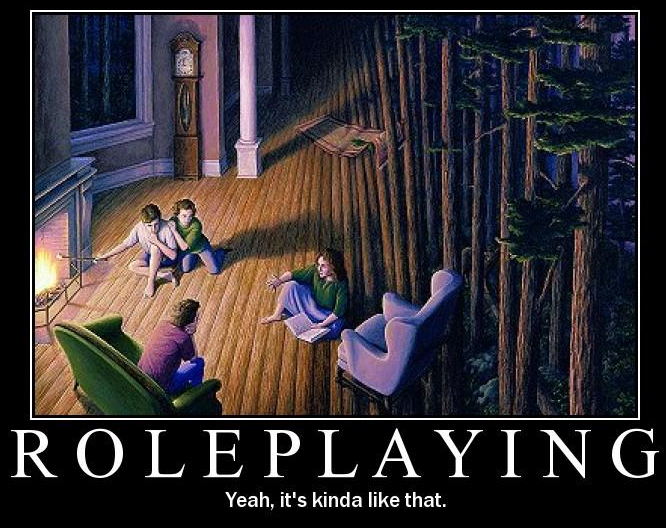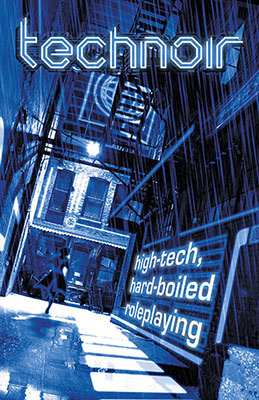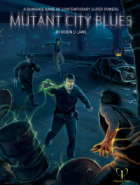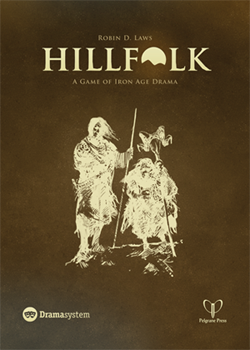
Role-playing games have been around long before today's offerings of dynamic, immersive adventures featuring beautiful vistas and gloriously-rendered, high-definition characters. Some have naturally been very successful and spawned multi-million pounds / dollars franchises. These are naturally popular with many people and will continue to be popular for a long time.
The goal of this article is to list five detective RPGs, which aren't quite as popular as today's successful franchises. Actually, perhaps the appropriate word might be obscure. Because technology has moved on so much, as detailed in the opening paragraph, it's unlikely you've heard of these detective RPGs -- which are of the paper-based variety.
But regardless of their relative obscurity and lack of technological prowess, the following games are uniquely interesting and definitely worth a go, if you're inclined.
Games like Mutant City Blues and Technoir are just two examples of the aforementioned detective RPGs in the list. And after that they become more unpredictable and their associated scenarios become really quite bizarre. Examples include Call of Cthulhu and Trail of Cthulhu, which demonstrate a more horror-orientated approach with lashings of mystique -- and another, Hillfolk, doesn't seem like a detective RPG, but features a clever system, introducing definite similarities. Really, many of these are significantly different from the conventional and super popular paper RPG, Dungeons and Dragons -- and that really keeps things nice and fresh.

1. Technoir
Technoir is a cyberpunk science fiction role-playing game where technology and gritty realism combine to create an experience like many crime novels. Here, the protagonists are high-tech couriers, unrelenting investigators and hackers, attempting to create a beneficial reality for themselves in an extremely difficult world.
The intention with this game and system is to create an experience where freedom is paramount and nothing is too restrictive. Technoir lets players fight, sneak, and attempt different approaches in a difficult and dark future. Various locations exist in the game which give players information on quests via billboards. Here, game masters uncover various plots which continue to develop as players proceed through the game.

2. Mutant City Blues
Mutant City Blues' story is remarkably similar to Heroes, that television program involving several people with superpowers. Where it differs, however, is the fact the protagonists are actually detectives, policing the streets of a world forever changed by mutant powers. While it might only be 1% of the population, that single percentage point is presumably enough to wreak considerable havoc, and the mutated adversaries featured within are definitely troublesome. People can read minds, travel through walls, shoot energy and even fly. What's not to like?
The player's squad is equally as mutated as the various denizens of the metropolis. And whenever any mutation-related killing occurs, the detectives are on the case, utilizing their mysterious super powers to even the odds. Players are capable of using genealogy to uncover who is potentially a mutant by using a clever diagram, linking powers together. Investigating residue from grisly murders and similar forensics is also possible using advanced technology, demonstrating this experience is both about high-tech goodness and incredible super powers -- a match made in heaven.
Mutant City Blues uses the GUMSHOE system, which is a system specifically designed for investigative approaches. It ensures a more frenetic approach than some systems and easily allows game masters a simplistic method for writing and running various scenarios. It always provides enough investigative information to be compelling, and that nearly always leads to a compelling ending to a case.

3. Call of Cthulhu
Call of Cthulhu features a more grounded scenario for players to ingest than many RPGs. Without nary a dragon and flaming, jewel-encrusted claymore of doom in sight, this adventure is a more realistic affair -- at least partially -- featuring various different characters who are relatively normal individuals. Normality really is the premise within this adventure, as demonstrated by the various classes available. Players can be academics, dilettantes, journalists and detectives.
So, yeah, relatively normal chaps.
But that's where the normality ends, as their purpose within this world isn't quite as ordinary as the protagonists seem -- rather, it's considerably the opposite. Here, the scenario is one of terrible darkness and suspense where insanity and fear combine to create a suspenseful, horror-filled scenario. Players are attempting to defeat a cruel evil that is beyond space itself, which is invulnerable and will drive them insane. All of this is based off of H.P. Lovecraft novels, putting the cherry-on-the-top of a spooky cake.

4. Hillfolk
While is not typically a noir-based RPG, in the conventional sense, Hillfolk is, compared to the others, fairly unique. Here the scenario is one of low-tech, simplistic equipment. The world is straightforward and industrial techniques are basic. Players control various characters who use spears and similar equipment for conflict. They plant crops and use simple agricultural techniques to build their village's supplies. Players can increase their village's size and even improve productivity.
It's possible to take the characters in the game and venture into other territories to battle for control of other territories, or venture elsewhere and form friendships with others. The particularly interesting aspect of this game, however, is an interpersonal one, which allows players to question each-other's motives, introducing that almost paranoid, detective-like angle. Players can actually choose to ally with each-other, or attempt to be more competitive and claim as much territory and resources as they desire. This uses the drama system rules to create the aforementioned affect.

5. Trail of Cthulhu
Trail of Cthulhu is another detective-orientated Role-playing game and is actually based on the first game on this list. Figured it out? Yes, it's based on Call of Cthulhu. Here, things are similar to the game it's based on and therefore everything is suitably atmospheric and tense. Again set in the same H.P. Lovecraft-orientated universe, unknown alien horrors are about and Gods up to no good also exist. Couple those things with cults of goons who worship those Gods and things are suitably challenging and grim for the game's heroes.
This game uses the GUMSHOE system, which is perfectly suitable for everything detective-orientated, allowing a focus on investigative approaches. It possesses many different features, like sanity measuring a character's ignorance of the real nature of reality and stability, which measure one's resilience in psychologically-taxing situations
This is similar to Call of Cthulhu in many ways, but features different scenarios, with mysteries in libraries and bloody crime scenes. Players can also patrol the mean streets of Chicago or wander through jungles in the south pacific,

That's all, folks, for the best detective RPGs nobody has heard of.
Are you personally aware of any others that could be considered even more obscure? It doesn't have to be paper-based, specifically -- we would love to hear about any and all obscure detective RPGs. The more obscure the better!
Leave your responses in the comments.






Published: Jul 1, 2016 06:24 am